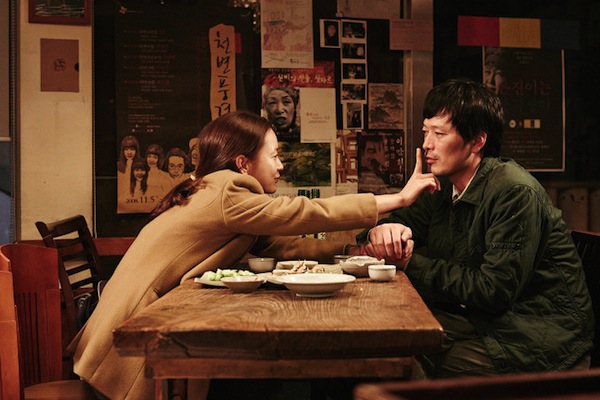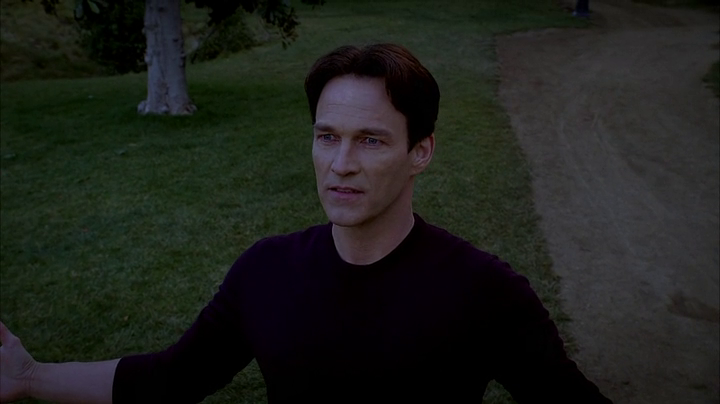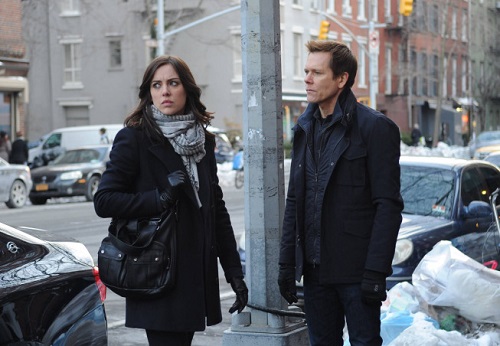Directed by Michel Hazanavicius
Written by Jean François Halin
France, 2009
Before Michel Hazanavicius and Jean Dujardin were Oscar-winning artists, they collaborated on the spy spoof comedy, OSS 117: Lost in Rio, the sequel to OSS 117: Cairo, Nest of Spies. Although Hazanavicius’ love for the genre is quite evident, he nevertheless fails in making you love Lost in Rio in the same way.
The year is 1967. Hubert Bonisseur de la Bath, aka OSS 117, (aka Jean Dujardin) is France’s most prolific spy. After a successful mission in Gstaad, Switzerland, Hubert is sent to Rio de Janeiro, where he dons the persona of Noël Flantier in order to track down a high-ranking Nazi exile.
The most complimentary thing you can say about Hazanavicius is something everyone acknowledged after his Oscar-winning 21st century silent film, The Artist – Hazanavicius knows his cinema.

In making a spy film set in the 1960’s, Hazanavicius perfectly replicates the bawdy, risqué aesthetic of that period. From the clever use of split screens, era-appropriate music, laughably bad shooting from the hip, and people relentlessly looking back when walking past each other, OSS 117: Lost in Rio feels like an authentic spy romp from the 60’s.
Because the mise en scène is so well done, it makes Dujardin’s culturally insensitive performance stand out and shine. As the character is revealed, we discover that Hubert is simply an anachronism of the 60’s. He is borderline racist, unapologetically misogynistic, covertly homophobic, and obliviously pretentious.
The biggest laughs in Lost in Rio come from his interactions with characters that, like the audience, embody contemporary sensibilities. When Hubert unwittingly says something offensive, the film revels in the awkward fallout that follows and his equally awkward attempts to rectify his words.
 An obvious satire of 1960’s social norms, the Hubert character can also be seen as a critique of the James Bond character. Knowing Hazanavicius, it likely is (007 = 117?).
An obvious satire of 1960’s social norms, the Hubert character can also be seen as a critique of the James Bond character. Knowing Hazanavicius, it likely is (007 = 117?).
However, Lost in Rio ultimately falters because Hazanavicius stands in between the viewer and the film. Constantly trying to impress the audience with his knowledge of 1960’s filmmaking, the actual picture, especially its story, becomes tertiary.
Although the movie’s aesthetic and characters are intriguing, the narrative is incredibly thin. Even though the intentions are clear, the film lacks direction. There are too many distractions and red herrings that showcase the film’s two aforementioned strengths, which, as a result, hurts the storytelling. Everything feels fractured and contrived.
Also, much of the film’s humour comes from misnomer jokes. Characters often misunderstand each other’s words, consequently leading to more misunderstandings and comedic confusion. For the native-French speaker, the lexicon jokes probably seem organic, but for others, it can feel perplexing and excluding. As a result, Lost in Rio can sometimes feel lost in translation.
 Despite it’s narrative shortcomings, OSS 117: Lost in Rio still has plenty of fodder for the cinematic foodie. As well as skillfully reproducing the 60’s spy film, Hazanavicius also peppers his movie with clever allusions to films from Hollywood’s Golden Age. Hitchcock fans, especially, will appreciate the North by Northwest and Vertigo references.
Despite it’s narrative shortcomings, OSS 117: Lost in Rio still has plenty of fodder for the cinematic foodie. As well as skillfully reproducing the 60’s spy film, Hazanavicius also peppers his movie with clever allusions to films from Hollywood’s Golden Age. Hitchcock fans, especially, will appreciate the North by Northwest and Vertigo references.
OSS 117: Lost in Rio boasts endearing performances and successfully taps into the nostalgia for 1960’s cinema. This is the spoof that the Austin Powers trilogy wished it could be. Just don’t expect this spy film to be revelatory.
– Justin Li
Visit the official website for the TJFF







